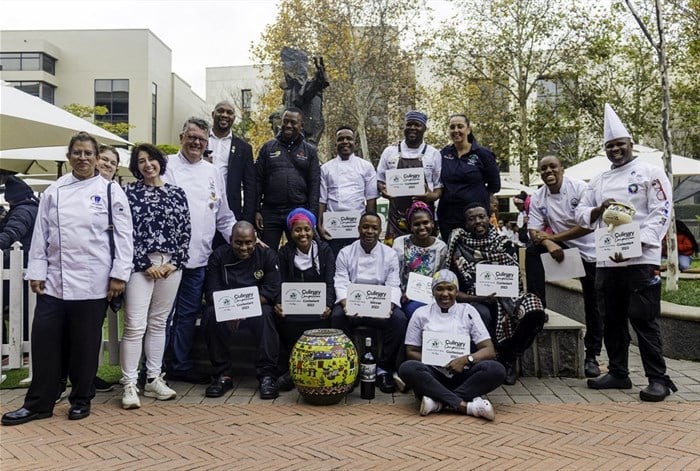
Related
Top stories






More news











Logistics & Transport
Uganda plans new rail link to Tanzania for mineral export boost














The competition, supported by Nederburg and established with two NGOs and the South African Chefs' Association, was conceived to bring indigenous ingredients back to the front and centre of professional hospitality and home cooking.
The producers concerned have been working with two non-governmental organisations (NGOs) to conserve traditional farming methods and upskill farmers for some time. Harvesting Heritage is an organisation that works to safeguard and maintain local heritage ingredients, cuisine, and culture, and SocioTech Broad-Based Livelihoods is an organisation that helps people become economically productive where they are with what they have.
Jackie Olivier, senior marketing spokesperson for Nederburg, says creating the competition was a way to highlight the ingredients, their nutritional value and versatility, both to the professional cheffing community and to home cooks. "The event also gives credit to the supplier growers, who have found ways to earn a living, feed themselves, their families, and their communities. And, through the awareness generated by the competition, we see potential new markets emerging for them as far afield as Gauteng."
As a collaborator, Nederburg also supplied the wines for the entire project. Chefs were introduced to the range at our initial workshop in March focusing on indigenous produce. Then, for the competition itself and the dining experience for which the public could buy tickets, award-winning sommelier Moses Magwaza chose the wines. He and winemaker Zinaschke Steyn also ran wine and food pairing workshops at the competition venue for the public throughout the day.
While a panel of accredited chefs judged the competing dishes based on their flavour, integration with other ingredients, originality and overall presentation, members of the public who attended the culinary dinner, where the same ten dishes were served, chose their favourite dish of the day.
Wandile Mabaso, who was declared the winner by the professional panel, made beef shin biltong mousse, with mopane textures, pumpkin and rosemary purée, eggplant and bone marrow caviar, beef jus smoked in impepho, cabbage chutney and caramelised onion. He also earned the award for best prime cut dish.
The people’s favourite dish was created by Mzwandile (Hector) Mnyayisa. It was slow-braised BBQ brisket, jugo bean cassoulet, and sautéed morogo, served on cilantro/coriander flatbread.
Meanwhile, Andile Somdaka achieved the award for best offal dish with his beef tallow pastry filled with sweet lerotse pudding.
Best plating, judged by Continental, went to Napo Ramaili and Themba Chauke.
"The judges were thrilled with the talent and inventiveness of all the competitors. They’ve shown how delicious our indigenous flavours are and why we need to celebrate them," says Olivier.
The produce used by the competitors was supplied mainly by eco-growers from Strydkraal, in the Greater Sekhukhune district of Limpopo.